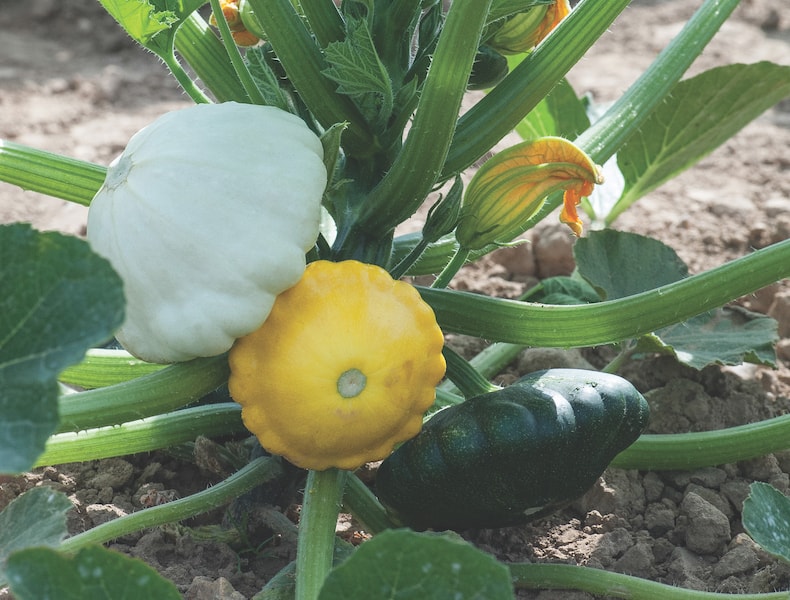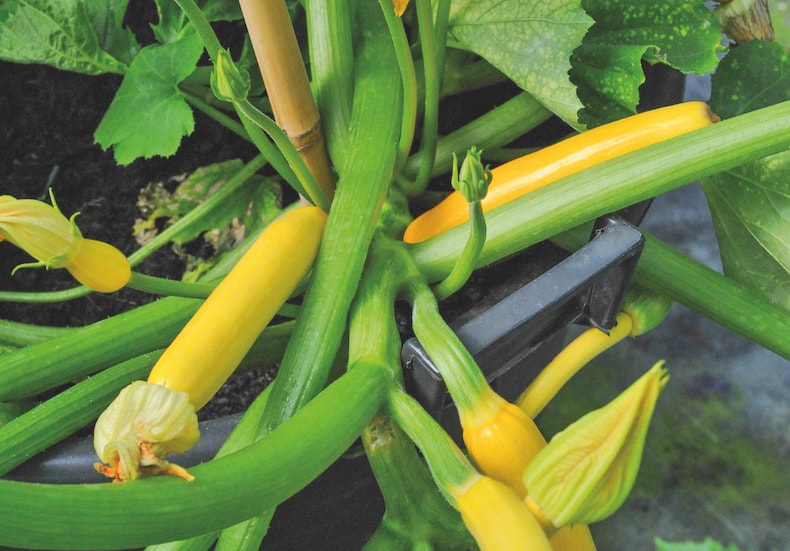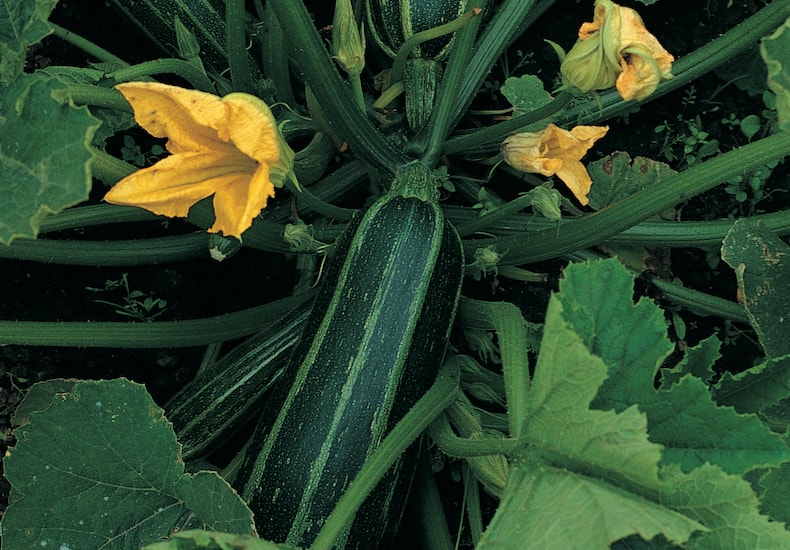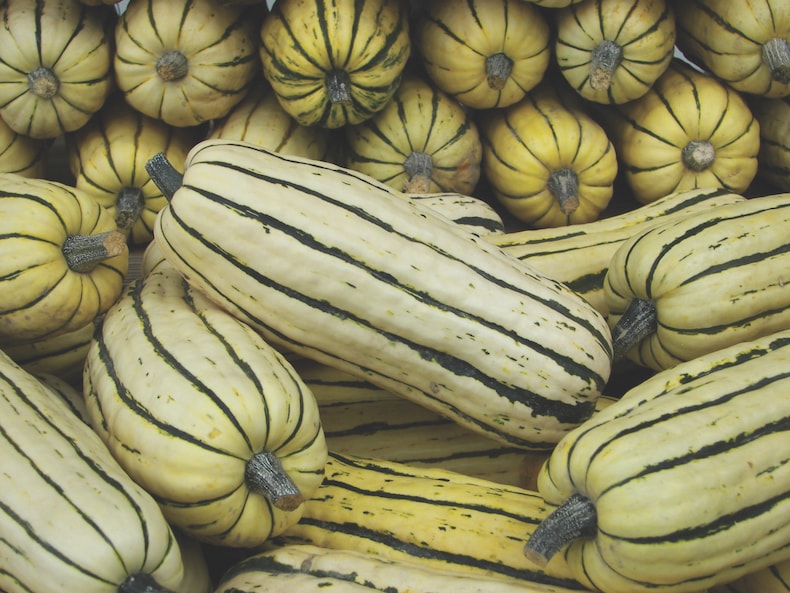How to grow marrows, courgettes and squashes from seed

Summer squashes are high yielding additions to the allotment or garden
Image: Squash 'Patty Pans Scallop Mixed' (Summer) from Thompson & Morgan
Marrows, courgettes and squashes are relatively easy to grow and usually provide a prolific crop. Hardworking members of the veg patch during the summer, squashes can be kept and stored through the winter too. Here’s how to sow and grow marrow, courgette and squash seeds for a healthy batch of homegrown cucurbits.
How many marrow, courgette and squash seeds should you sow?

Courgettes produce fruit throughout the summer until the first frosts
Image: Courgette 'Shooting Star' from Thompson & Morgan
When growing from vegetable seeds, always sow a few more than you need and choose the healthiest seedlings to grow on.
For a family of four, you’ll find that four-six courgette plants and two-four marrows is usually sufficient. Three summer squash plants will provide a ready supply through the warmer months, and an additional two winter squash plants will give you enough fruits to store through the colder months. Butternut squash stores particularly well.
For a fun combination of three different squash varieties, try Summer squash ‘Summer Mix’ (harvest from June to October). If you follow this with a winter butternut squash variety like ‘Harrier’, you’ll enjoy homegrown produce right through until spring.
Sowing a combination of green and yellow courgettes adds colour and interest to your summer plates. Yellow courgette ‘Orelia’ has a RHS Award of Garden Merit and is virtually spineless for easy picking. Another attractive and fun addition to the garden, Marrow ‘Tiger Cross’ produces striped fruit and also holds an AGM.
How to sow marrow, courgette and squash seeds

Marrows are delicious stuffed and baked whole
Image: Marrow 'Bush Baby' from Thompson & Morgan
Sow your marrow, courgette and squash seeds individually in seed trays or small pots. Place them in the soil on their sides, about 1.25cm ( 0.5in) deep, and keep them somewhere with a stable temperature of 18-21°C (65-70°F). After germination, repot your seedlings singly and grow on in a sunny spot. Harden them off for around 10 days before planting outdoors.
How to care for marrow, courgette and squash plants

Squashes can be an ornamental addition to the garden
Image: Squash 'Honeyboat' from Thompson & Morgan
Plant out your marrow, courgette and squashes at the end of May, when they have at least three true leaves. Allow plenty of room around each plant (about 1m) and choose a sunny, open site with humus-rich soil. They need plenty of water through the growing season, but try not to splash the leaves. A weekly feed with a liquid fertiliser helps ensure a steady supply of fruits.
Cut courgettes when 4-6in (10-15cm) long and marrows when the skins can still be readily marked with the thumbnail. Summer squashes are best when they’re still small and tender, and winter squashes should be harvested as soon as they’re large enough for storage, but well before the first frosts.
We hope we’ve given you plenty of information to help you grow your own marrow, courgette and squash crops from seed. Head to our pumpkin and squash hub page for further advice about these tasty vegetables, or be sure to check out our courgette hub page - our dedicated gardening resource, full of detailed growing guides, variety advice and recipe ideas.
Sign Up For Exclusive Special Offers




© 2025 Thompson & Morgan. All rights reserved. A division of Branded Garden Products Limited.
Sign up for exclusive offers!



